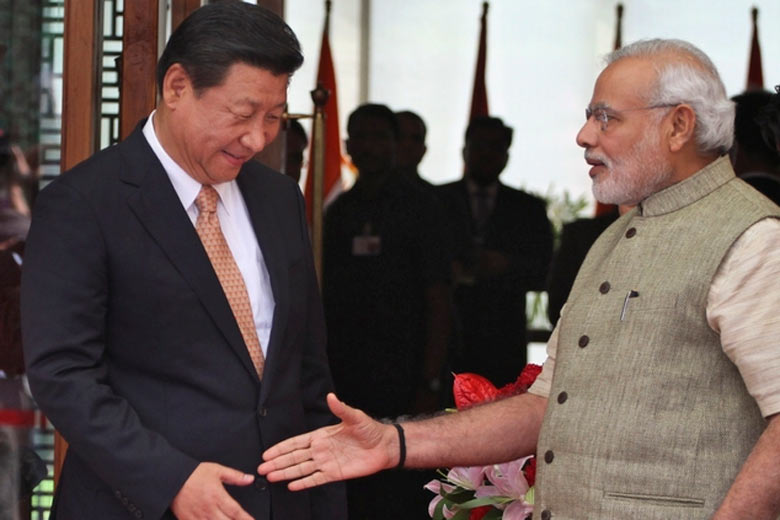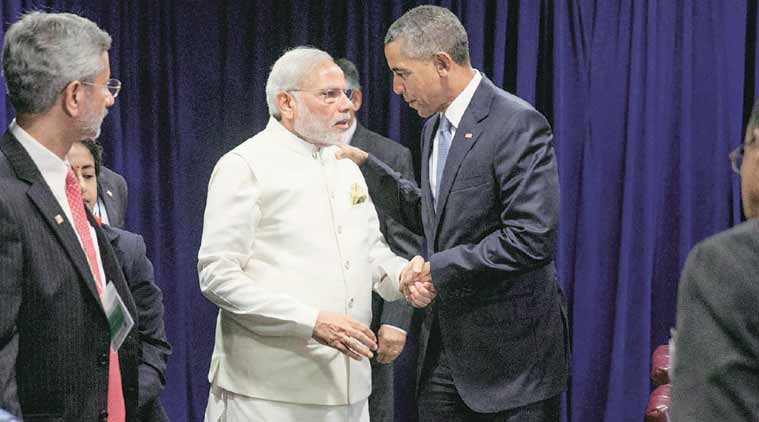The NSG (Nuclear Suppliers Group), a consensus-based organization, was originated in retort to the Indian nuclear test in May 1974 and the group first met in November 1975. However, India has not been able to secure membership of the Nuclear Suppliers Group. It was recapped on September 13, 2018, by Alice Wells, the Principal Deputy Assistant Secretary of State for South and Central Asia. While calling attention to China’s veto against India, she asserted that the US will carry on advocating for India’s membership in the elite grouping as it meets all the criteria. All that has been said by Wells, in Washington, goes in favour of India.
With Alice Wells statement on September 13, 2018, this point has become more evident that China has time after time rebuffed India’s bid for seeking entry into the 48-member elite nuclear club, which controls nuclear trade. For quite a long time, India has been backed by the US and a number of western countries — India has harvested the support of a majority of the group’s members.

However, China has stuck to its stand that new members should sign the Nuclear Non-Proliferation Treaty (NPT), making India’s entry problematic as the group is steered by the consensus principle. It’s worth recalling that India is not a signatory to the NPT. In order to comprehend why India has not been able to attain the NSG membership even after 44 years of the foundation of the NSG, we need to revisit the history.
The Nuclear Suppliers Group (NSG) is a multidimensional export control organization and a group of nuclear supplier countries that seek to avert nuclear proliferation by regulating the export of materials, equipment, and technology that can be used to manufacture nuclear weapons. The NSG was founded in response to the Indian nuclear test in May 1974. The test proved that certain non-weapons specific nuclear technology could be freely turned to the expansion of nuclear weapons.
At that juncture, a need was felt by the nations, already signatories of the Nuclear Non-Proliferation Treaty (NPT), to further limit the export of nuclear equipment, materials or technology. The idea behind this had another benefit — the then Non-NPT and Non-Zangger Committee nations, specifically France, could be brought in.
Subsequently, from 1975 to 1978, in London, a series of meetings were held. Thus, the name of the London Club came into being. It has also been expressed as the London Group or the London Suppliers Group. These meetings gave rise in agreements on the guiding principles for export. The resolutions were published as INFCIRC/254 by the International Atomic Energy Agency, according to which only the listed items could be carried across to non-nuclear states. That too, if definite International Atomic Energy Agency safety measures were agreed to or if exceptional circumstances relating to safety existed.
Until the meeting held at the Hague in March 1991, there was no other meeting held by the NSG. Thus, the Trigger List lingered untouched until 1991, even though the Zangger list was frequently restructured. Following the first Gulf War, the disclosures about the Iraqi weapons program headed to a constriction of the export of self-styled dual-use equipment. At the meeting held at the Hague in March 1991, the twenty-six partaking governments agreed to the changes. Those changes were published as the Dual-use List in 1992.

Over a period of time, India has been unceasingly receiving backing from many countries. During a state visit to India in November 2010, the U.S. President Barack Obama proclaimed U.S. support for India’s participation in the Nuclear Suppliers Group. Also, during Republic Day visit of India in January 2015, he retold that India was ready for NSG membership. Again, he reiterated U.S. support for India’s NSG membership on June 8, 2016, during India’s PM Narendra Modi’s visit to Washington DC.
Similarly, during a visit to India in December 2010, French President Sarkozy also voiced his country’s back-up for India’s inclusion in Nuclear Suppliers Group. As a known fact, obviously, the United Kingdom for a long time has been a supporter of India’s inclusion in the Nuclear Suppliers Group. Russian president Vladimir Putin has also offered unreserved support to India’s entry into NSG. Switzerland also publicised its backing on India’s Membership in 48 member group on June 6, 2016, during Narendra Modi’s visit to Geneva. Japan has conveyed support for India’s offer for membership of the NSG.
In June 2016, India got decisive support from Mexico. In July 2016, South Africa also agreed to back India’s entry into the NSG. On October 17, 2016, following the BRICS summit in Benaulim, and Goa, Brazil legitimately backed India’s bid for NSG membership. On April 16, 2018, Germany maintained India’s bid for NSG membership affirming that India’s inclusion into the NSG will boost the global export control system.
On the other hand, China has been constantly opposing India’s membership to NSG. New Zealand, Ireland, and Austria are few other countries that have been opposing Indian membership of the Nuclear Suppliers Group (NSG).
By the information in the clouds, it is clearly evident that China’s opposing for India’s entry is premeditated. Nevertheless, with the September 13, 2018, declaration from Washington, by Alice Wells, it has become obvious that the Indian membership of the Nuclear Suppliers Group is in the cards.
– Dr. Suman Kumar Kasturi












